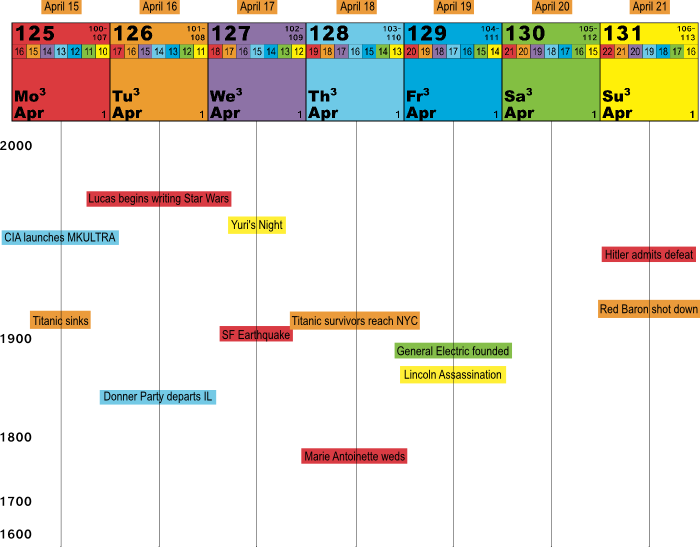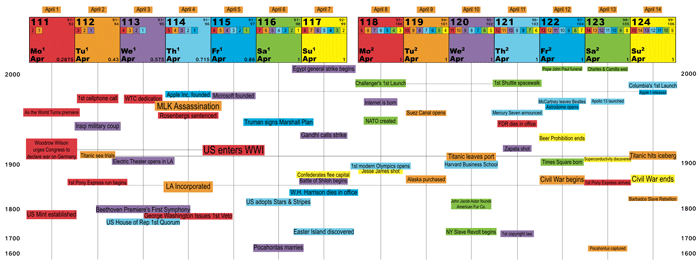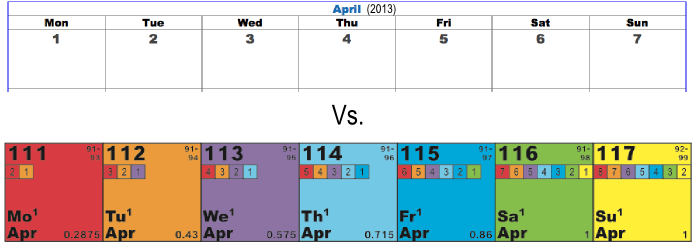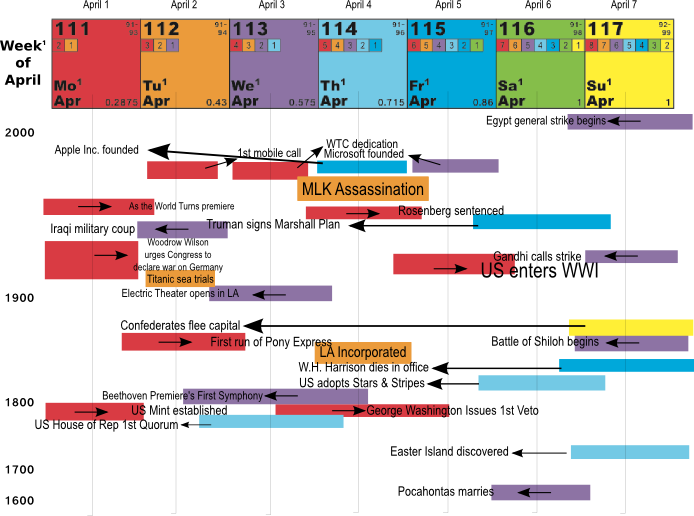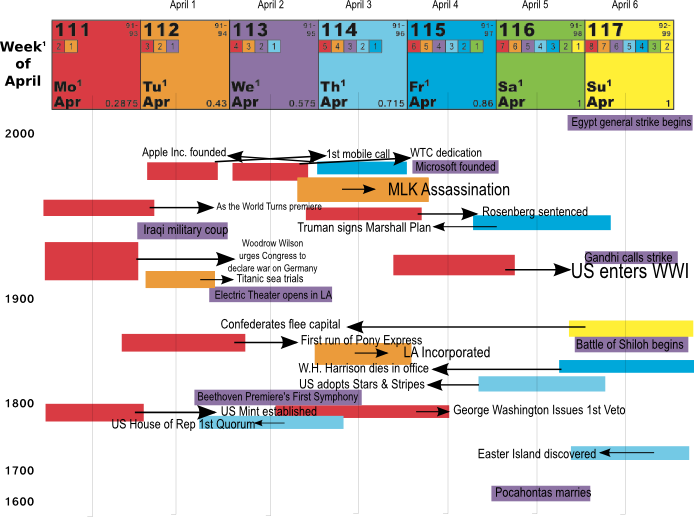This is the second time in less than a year that I’ve tried to start a series with “This Week” leading off the title. The first was an experiment with headlines from the New York Times I did last summer and which had completely slipped my mind when I started working on This Week in History with the Periodic Calendar a month ago. Obviously I want to organize information in time… I’m just working out the format and focus it will take.
Anyway, below I’ve included some events from week3 of April, but now that I’m working with a sample of historical data for the whole month of April, a week suddenly seems as paltry a portion as “This Day in History” seemed to me last month.
Rather than weekly posts, this might turn into a monthly endeavor and eventually, I’ll go ahead and call it now, a landmark coffee table book.
By further expanding our scope and focusing on sagas from Aprils past, we get a sample of what lies ahead…
While the particular day of the week an event occurred on isn’t always conceptually significant, a stable chart would seem to trump an inconsistent one every day of the week. Below we have the same events as portrayed by 2013 calendars. Note that only the Titanic’s story remains in place, due to 1912 being a Tuesday Year, just like 2013.
Next year of course, 2014 calendars will tell a completely different story, whereas the chart based on the Periodic Calendar remains the same no matter what year it is.

